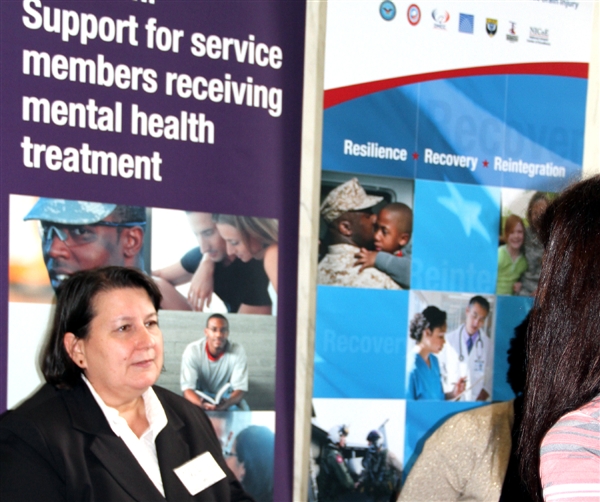FORWARD OPERATING BASE SHARANA, Afghanistan, May 10, 2011 — Task Force Currahee, composed primarily of soldiers from the 101st Airborne Division’s 4th Brigade Combat Team, will return to Fort Campbell, Ky., in the coming months.
During a May 6 redeployment-focused conference here that brought together the brigade’s seven religious support teams — each consisting of a chaplain and chaplain assistant — the brigade’s commander and command sergeant major outlined the challenges they expect as the troops move home and cope with their deployment’s aftermath.
Army Col. Sean M. Jenkins, brigade and task force commander, said the biggest challenge is ensuring all 4,200-plus soldiers get any help they need. For members of an airborne infantry unit, it isn’t easy seeking help for post-combat stress or for personal or domestic issues, the colonel said.
“Type‑A personalities, 6‑foot‑2 and bulletproof — most Currahees put themselves in that category,” he said. “We’ve got to break through that.” Responsibility for seeking needed care rests on the individual soldier, Jenkins said, but leaders at all levels have to ensure their soldiers know there is no stigma attached to asking for help and that they know what help is available.
For 90 to 120 days after returning to Fort Campbell, the colonel said, soldiers can expect a tough period of adjustment. His plan is to educate leaders down to the squad and team level about how best to help their soldiers make that adjustment.
As the deployed soldiers return, new troops and their families will be arriving, Jenkins said, noting up to 1,400 new Currahees will begin assignments at 4th Brigade over the next several months.
The religious support teams can help to educate young leaders in how to help their soldiers, and also can work with families and family support groups, Jenkins said. Some of the religious support teams will redeploy early to help manage the transition as the troops return home, the colonel said, adding that he plans to maintain a comfortable rhythm for soldiers coming out of Afghanistan.
“We will go back, we will do the seven-day integration, and we will be in a battle rhythm the entire time,” he said. Jenkins said he will maintain regular report times for duty and daily physical training as soldiers reset at Fort Campbell before unit block leave starts in September. This will give troops a routine they’re comfortable with, and will help to establish a normal sleep cycle at home, he explained.
The military improves mission performance not only through technology, tactics and procedures, Jenkins said, but also through mindset. Resources are available to assist soldiers in their return to garrison and family life, he added, but the mindset they need is that it’s their responsibility to use those resources. “We want to be proactive back there, we don’t want to be reactive,” the colonel said. “It is a collective effort.”
The brigade’s senior enlisted leader, Command Sgt. Maj. William R. Hambrick Jr., told the assembled religious support teams their work is critical to the unit’s success. “We’ve been deploying in this war on terror for a long time,” he said. “We’ve been pushing these soldiers hard. But you are the people who advise the commanders on the pulse of the companies and battalions.”
Returning home is a risky time for soldiers, Hambrick said. In the past, drunk driving accidents and incidents of spouse and child abuse have spiked following Army redeployments. “That’s because we let those soldiers go with a high-five at the ramp when we got home,” he said. “We don’t do that any more.”
Soldiers make the U.S. Army the best in the world, he said, and the effort the brigade chaplains are putting into managing redeployment issues demonstrates how the Army “gets after an issue” to keep the force strong.
“When we put our minds to something, we always succeed,” he said.
Source:
U.S. Department of Defense
Office of the Assistant Secretary of Defense (Public Affairs)

 von
von 
